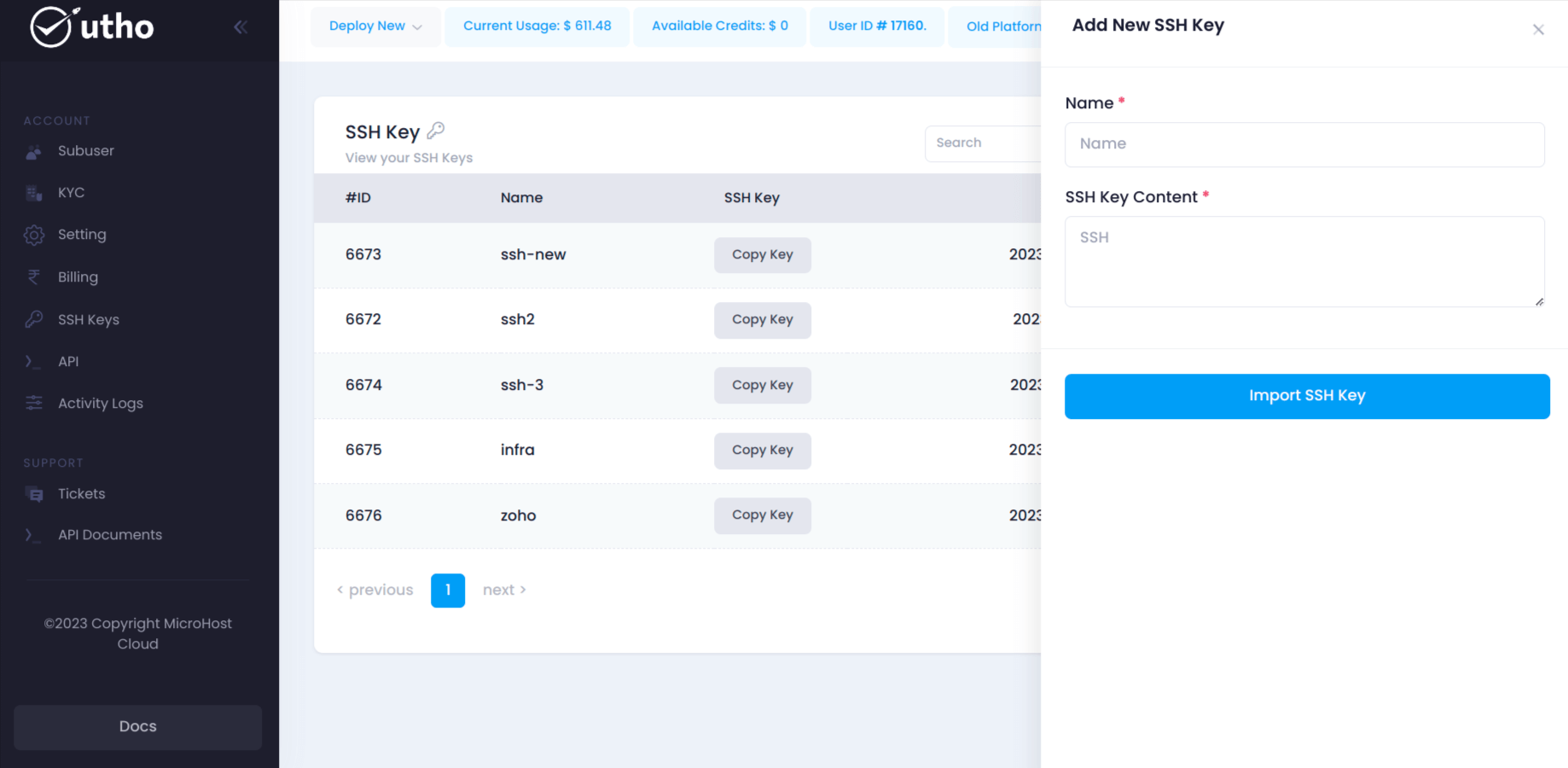Remoteiot SSH Key Management - Keeping Your Devices Safe
When it comes to keeping your remote systems secure, especially those many little internet-connected gadgets, making sure only the right people can get in is pretty important. This often means setting up a kind of secret handshake, a special digital key, for everyone who needs to connect to a far-off server. Getting these keys made, giving them to the right folks, and then keeping an eye on them as time goes on, is what we're talking about here, and it's a big part of staying safe.
Think about all the tiny computers and sensors that are popping up everywhere, like those smart home gadgets or industrial monitors; they all need a way to talk to a central system without someone bad listening in or pretending to be one of them. The sheer number of these devices growing so quickly means we really need good ways to keep them protected, you know, because a weak spot in one can cause trouble for many. This is where a thoughtful approach to security, particularly how we manage access, becomes something really necessary.
So, what if you could have one spot, a sort of central command post, where you could handle all these digital keys for all your remote equipment? That's the idea behind managing these access credentials in a more organized way. It's about making sure that when someone tries to connect to one of your faraway devices, they're using a proper, verified key, which helps keep your important information safe and your systems running as they should. It really helps simplify things quite a bit, too.
- The Fan Bus
- Raspberry Pi Remote Batch Job Work From Home
- The Fanbus Tv Cast
- Access Raspberry Pi Outside Local Network
- Ww Xx Picture
Table of Contents
- Why is Remoteiot SSH Key Management So Important Now?
- What Does Centralized Remoteiot SSH Key Management Do?
- How Does Remoteiot SSH Key Management Help with Growth?
- What Are the Key Steps in Remoteiot SSH Key Management?
- Can Remoteiot SSH Key Management Make My Raspberry Pi Safer?
- How Do SSH Keys Improve Security Over Passwords for Remoteiot SSH Key Management?
- What Benefits Come from Using Remoteiot SSH Key Management?
- How Does Remoteiot SSH Key Management Handle Devices Behind Firewalls?
Why is Remoteiot SSH Key Management So Important Now?
The way we get into computers and other gadgets that are not right next to us, like servers in a far-off building or a sensor in a factory, truly relies on special digital passcodes called SSH keys. These keys are a much safer way to confirm someone is who they say they are, compared to just using regular passwords, you know. For every person or machine that needs to connect, you have to make one of these keys, give it to them, and then keep track of it. This process, when done well, means that only authorized individuals or systems can get access, which is pretty vital for keeping everything safe.
As more and more little devices that connect to the internet, often called IoT gadgets, become part of our daily lives and our businesses, the need to protect them becomes even bigger. Think about smart thermostats, security cameras, or even industrial sensors; each one is a potential entry point for someone who shouldn't be there. So, there's a really growing call for strong ways to keep these things secure, and remoteiot SSH key management is a big part of that. It's a way, in some respects, to make sure all those little digital doors are locked up tight.
Using SSH, which stands for Secure Shell, means that people who look after these devices can manage them from anywhere, without having to go physically to each one. This makes things much smoother and cuts down on the need for someone to actually be there in person, which is pretty handy, especially when you have devices spread out all over the place. So, for example, if you have a hundred smart sensors in different locations, you can check on them and update them all from your office, which is a very efficient way to work.
- How To Make Fleshlight
- Jerk Video Chat
- Is Selena From Peloton Pregnant
- Tmz Charles Latibeaudiere
- Megan Stoner What Did She Do
What Does Centralized Remoteiot SSH Key Management Do?
Imagine having a single spot where you can see and control every digital key and every file that lets someone log in using SSH. That's what a centralized system for remoteiot SSH key management gives you. It means all your authentication keys, the ones that prove who you are, are kept in one place. This makes handling them much easier because you're not searching through different systems or trying to remember where each key is stored. It just brings everything together, which is quite helpful.
When you handle things from one main location, it makes the whole process of managing these keys a lot simpler. It also makes your security better because you can set up standard rules for everyone and everything. This helps cut down on mistakes that people might make, like forgetting to take away a key when someone leaves the team or accidentally giving access to the wrong person. In a way, it's like having a single, well-organized cupboard for all your important digital keys, making them easier to find, check, and put away when needed, so you can keep your remoteiot infrastructure safe.
This kind of central control also makes it easier to check who has access and when they used it. It simplifies the process of giving out new keys, changing old ones, or taking away keys that are no longer needed. So, for example, if an employee leaves, you can quickly remove their access from all systems at once, rather than having to go to each system individually. This is a big plus for keeping things tidy and secure, and it means you have a very clear picture of all access points, which is important for remoteiot SSH key management.
How Does Remoteiot SSH Key Management Help with Growth?
When you have just a few internet-connected devices, managing their access might seem simple enough. But what happens when you start adding hundreds, or even thousands, more? That's when things can get a bit tricky. Making sure your security measures can keep up with this kind of growth, while still letting you work efficiently, needs a careful plan. Remoteiot SSH key management is all about finding that good balance between keeping things super safe and making sure operations run smoothly, even as you get bigger.
It's essentially a way for people to manage their SSH keys to keep their entire connected environment safe, whether it's small or growing very quickly. This kind of system helps you handle the making of new keys, giving them out to the right devices or people, and then keeping watch over them. So, for instance, if you're bringing a whole new batch of smart sensors online, the system helps you get them set up with the right access credentials without a lot of fuss. It makes sure that as your collection of devices grows, your security doesn't fall behind, which is pretty important.
The tools that come with remoteiot SSH key management are designed to take away the difficulty of giving out and looking after SSH keys across many different systems. Instead of having to manually set up keys on each device, which can be very time-consuming and prone to mistakes when you have a lot of devices, these tools automate much of that work. This means you have one central point from which to control the entire key lifecycle, from giving them out to changing them regularly and taking them back when they're no longer needed. It just makes the whole thing much more manageable, you know, especially when you're adding new devices all the time.
What Are the Key Steps in Remoteiot SSH Key Management?
At its heart, managing SSH keys for remote systems involves a few main actions. First, you have to create these special digital keys, which are essentially unique pairs of cryptographic codes. Then, these keys need to be given out to the right users or devices so they can prove who they are when they try to connect to a far-off server. And finally, you have to keep control over these keys, making sure they are used properly, changed when needed, and taken away if someone no longer requires access. This entire process is about making sure that only the right digital handshakes are happening, which is pretty vital for any remote operation.
When we talk about remoteiot SSH key management, this process gets a bit more involved because you're dealing with a vast network of many different devices, often in various locations. So, it means creating new keys, distributing them securely across all those little gadgets, regularly changing them to keep things fresh and safe, and then taking them back when a device is no longer in use or if access needs to be stopped. This detailed set of actions truly calls for careful thought and precise action to keep both your systems safe and make sure you're following all the necessary rules and regulations. It's not just a simple task; it requires a bit of planning.
The good news is that specialized platforms for SSH key management are available to help with all this. These platforms offer a central way to manage everything, allowing for things like automatically giving out keys to new devices, or setting up regular checks to make sure everything is in order. For instance, they can help you keep track of every key, making sure it's linked to the correct device or person. This means less manual work and a better overall security stance, which is very helpful when you have a lot of devices to look after.
Can Remoteiot SSH Key Management Make My Raspberry Pi Safer?
Absolutely, it can! If you're someone who uses a Raspberry Pi for various projects, whether it's for home automation, a small server, or something else, you know how important it is to keep it secure, especially if it's connected to the internet. Setting up SSH keys instead of relying on simple passwords is a much stronger way to protect your little computer. Passwords can be guessed or stolen, but SSH keys are much harder for bad actors to crack, providing a far more secure alternative for remoteiot SSH key management.
There are even free systems available that are specifically designed to help you manage your SSH keys, making secure remote access to your Raspberry Pi much simpler. This means you can spend more time working on your cool innovations and less time worrying about security issues or trying to fix things when something goes wrong. It really lets you focus on what you want to build or create, which is pretty neat. So, for example, if you're building a smart garden system with a Raspberry Pi, you can be confident that your access to it is well-protected.
Imagine being able to access your Raspberry Pi from anywhere, even if it's sitting behind a firewall or a network router that usually makes it hard to connect to from outside. With the right remoteiot SSH key management tools, you don't need to go through the trouble of finding your device's exact internet address or changing complicated firewall settings. You can, in fact, directly connect to your Raspberry Pi using SSH or even VNC, which lets you see its desktop, just as if it were on your local home network. This makes remote access incredibly straightforward and secure, which is a very big convenience.
How Do SSH Keys Improve Security Over Passwords for Remoteiot SSH Key Management?
Using SSH keys for access is a considerably safer option than just using passwords, especially for your remoteiot SSH key management needs. Passwords, you see, can often be weak, easy to guess, or might even be written down somewhere. They are also vulnerable to what's called "brute-force" attacks, where someone tries many different combinations until they find the right one. SSH keys, on the other hand, are much longer and more complex strings of characters, making them virtually impossible to guess or crack using common methods. They rely on a pair of keys – one public, one private – and the private key never leaves your computer, which adds a lot of safety.
This added safety that SSH keys provide helps to greatly reduce the chance of unauthorized people getting into your systems. Because the key is so complex and the private part stays put, it means that even if someone manages to intercept your connection, they won't be able to easily pretend to be you. This is a big step up from passwords, which, if compromised, can give an attacker immediate access. So, you might say, SSH keys offer a much stronger shield against unwanted intrusions, which is pretty important for keeping your remoteiot infrastructure secure.
The fact that SSH keys are so much harder to compromise really highlights why having a central way to manage them is so important. This centralized approach lets organizations set up and enforce consistent security rules across all their remoteiot devices and systems. It means that every device, no matter where it is, follows the same high standards for access. This consistency helps to close potential security gaps that might appear if each device or user managed their keys in their own way. It's about building a solid, uniform wall of protection, which is very helpful for peace of mind.
What Benefits Come from Using Remoteiot SSH Key Management?
There are quite a few good things that come from using a system to manage your remoteiot SSH keys in a smart way. For one, it makes your overall SSH security much better. By using strong, properly managed keys, you're making it much harder for anyone who shouldn't be there to get in. It also makes the whole process of handling those keys a lot simpler. Instead of juggling many different keys and trying to remember where each one is, you have a clear, organized system that takes care of it for you. This means less stress and more confidence in your remote access, which is pretty valuable.
One of the big benefits is that you can get to your Raspberry Pi, or any other IoT device, even if it's sitting behind a firewall or a NAT router. You know, those things that usually make it hard to connect to devices from outside your local network. With this kind of management, you don't need to spend time figuring out the device's exact internet address or changing any complicated firewall settings. It just works. This is a huge convenience for anyone managing devices that aren't directly exposed to the public internet, which is a very common situation.
You can literally connect directly to your Raspberry Pi, or other IoT devices, from anywhere, using SSH or VNC, as if it were right there on your local network. This kind of direct connection makes remote troubleshooting, updates, and monitoring incredibly easy. It's like having a direct line to your device, no matter how far away it is. This capability means you can keep your operations running smoothly without needing to be physically present, which saves a lot of time and effort. It really simplifies things in a big way.
How Does Remoteiot SSH Key Management Handle Devices Behind Firewalls?
One of the really neat things about remoteiot SSH key management, especially when combined with platforms like SocketXP, is how it handles devices that are not directly accessible from the internet. Many IoT devices, like your Raspberry Pi, sit behind a firewall or a NAT router. These network setups are common for security reasons, but they also mean that directly connecting to your device from outside your local network can be a bit of a puzzle. However, with the right remoteiot SSH key management approach, this issue more or less goes away.
You see, with this kind of system, you don't need to go through the hassle of trying to find the exact internet address of your IoT device, which can change, or messing with your firewall settings to open up specific "ports" for access. That can be a bit of a headache for many people. Instead, the system helps create a secure pathway, a sort of tunnel, from your remote location directly to your device, bypassing those common network barriers. This means you can connect to your Raspberry Pi or other devices as if they were right there on your desk, even if they're actually in a different city, which is pretty convenient.
This capability to access devices behind firewalls without complex setup is a big part of why centralized control, automated ways of setting things up, and good ways to check who did what are so important. It gives you the power to manage your devices from anywhere, without compromising on security or getting bogged down in network configuration. It really simplifies the whole process of remote device management, making it much more accessible and efficient for everyone involved. So, for instance, you can update software on a device in a remote location without any fuss, which is a very practical benefit of remoteiot SSH key management.
- Usain Bolts Real Name
- When Was Fred Astaire Born And Died
- Morgan Fille Lsu
- The Rookie Where To Watch
- Telegram Raaxo

SSH Key Management Compass - Guide | SSH

SSH Key Management Basics – Secureology

Seamless SSH Key integration - By Utho